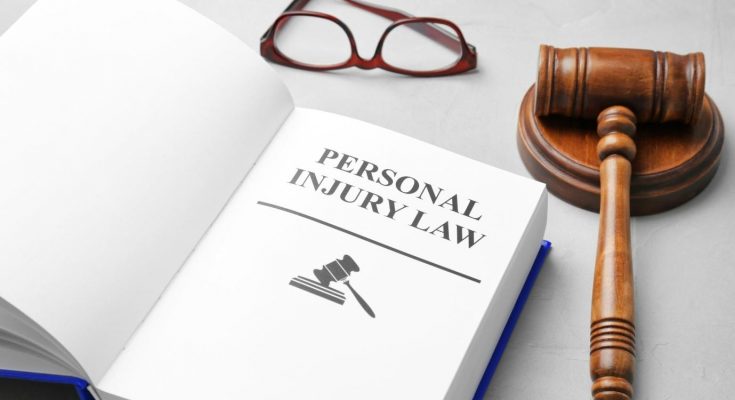Are you seeking justice after an accident, injury, or negligence? Even if you think you have a valid personal injury claim, you may need to learn more about personal injury lawsuits and how they work.
Each case is unique, and hiring a lawyer is paramount to your case getting accepted in court. If you need help deciding which lawyer to hire, consider learning as much as possible about personal injury lawyers.
Here are several interesting facts about personal injury law to inspire you to search for the best personal injury attorney in your area.
1. Recover Damages in a Personal Injury Lawsuit Even at Fault
Personal injury lawsuits are essential to protect individuals who have suffered physical or monetary harm. Although you may be at fault in an accident, it is still possible to recover damages in a personal injury lawsuit.
The rules of liability and damages in a personal injury lawsuit vary by jurisdiction. The general rule is that even if you are at fault in an accident, you may be able to recover any damages. You may have suffered to any person, property, or belongings as a result of another party’s negligence.
If a lawsuit is settled out of court, the damage recovered may be affected even if other parties are found at fault.
2. Plaintiffs in a Personal Injury Lawsuit Generally Have 3 Years to File a Claim
For most states, a person wishing to bring a personal injury claim has up to 3 years from the injury or accident date. Those involving a government agency or a share of medical malpractice, their timeline may be more immediate, or the deadline could be extended.
Knowing the statute of limitations when pursuing a personal injury claim is essential to the success of the case.
3. Can Recover Both Economic and Non-economic Damages in a Personal Injury Lawsuit
Economic damages address the injury’s direct costs, such as medical bills and lost wages. Non-economic damages, such as pain and suffering and emotional distress, are more subjective.
Sometimes punitive damages punish the defendant to deterrence may also be recovered. In cases where a large number of individuals are injured, you can file a class action lawsuit. A court-appointed representative may negotiate on behalf of the entire group.
4. Successful Plaintiffs in a Personal Injury Lawsuit Are Generally Awarded Compensatory Damages
Compensatory damages restore people to the financial state they were in before being injured, and they can take many forms. For example, the cost of medical bills, the inability to earn a living due to a disability, mental and emotional suffering, pain and suffering, and even loss of companionship for loved ones are all common forms of compensatory damages awarded in personal injury cases.
Such awards usually come with a combination of damages for economic losses, such as lost wages, and non-economic losses, such as pain and suffering. It helps to provide a sense of justice and closure for those wronged in an accident. Even if it can’t undo the events that caused the personal injury in the first place.
5. May Also Award Punitive Damages in Some Cases To Punish the Defendant for Especially Careless or Reckless Behavior
Punitive damages are a powerful tool used to punish those who have caused injury to another individual. It is used by engaging in reckless or careless behavior. The court may award punitive damages if a defendant has shown gross negligence.
It can be if their actions have been particularly egregious. This award is besides other compensatory damages that may award. Some interesting facts about punitive damages in personal injury cases include the number of punitive damages that can be granted.
According to the California Civil Code, there is no limit on the number of punitive damages awarded. Insurance companies must not pay punitive damages and must be paid by the defendant.
6. Attorneys May Be Willing To Operate on a Contingency Fee Basis
This contingency fee is a structure where a lawyer only gets paid if the client is awarded compensation. This fee structure allows people to pursue legal services without worrying about up-front costs or fees.
Attorney fees are generally a percentage of the salary awarded. A higher compensation award may result in the wrongful death attorney receiving a more significant fee. The client may also be responsible for any court costs or out-of-pocket expenses associated with filing the lawsuit.
7. Most Personal Injury Lawsuits Are Settled Out of Court
It occurs because both parties want to avoid the expense and stress of a trial. Settling out of court allows an injury victim to receive compensation more quickly than they would through a problem.
Another noteworthy fact is that injury victims don’t usually pay legal fees upfront; the cost is typically taken out of their personal injury settlement. Injury victims are eligible for various types of compensation for their injuries, such as lost wages, medical expenses, pain and suffering, and punitive damages. Understanding these facts about personal injury lawsuits can help one get the best result from a claim.
8. The Amount of Evidence Required in a Personal Injury Lawsuit Varies Depending on the Particulars of the Case
The evidence required in such cases varies widely. To prove a personal injury case, plaintiffs must provide clear evidence that their injuries were caused by another person’s negligence or malicious actions or even by the actions of a third party.
Depending on their particular case, specific evidence might be more persuasive than other evidence. The jury is allowed to consider medical and non-medical evidence, including photographic evidence, testimony from experts in the field, etc.
An expert witness might be necessary to show the causality of an injury. Such lawsuits have served to hold negligent. Malicious parties accountable and ensure that injured victims receive the compensation they deserve.
Know Some Facts on Personal Injury Lawsuits
Personal injury lawsuits are complicated and intricate but can be a great way to hold a negligent party accountable. Awareness of an individual injury case’s timeline, expenses, and legalities is essential.
If you or someone you know has been injured due to the negligence of another, contact an experienced personal injury lawyer today to learn what options are available.
Was this information helpful? Please keep browsing our blog for more legal resources.



